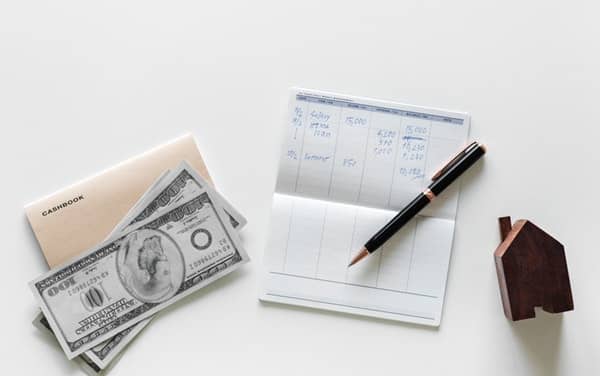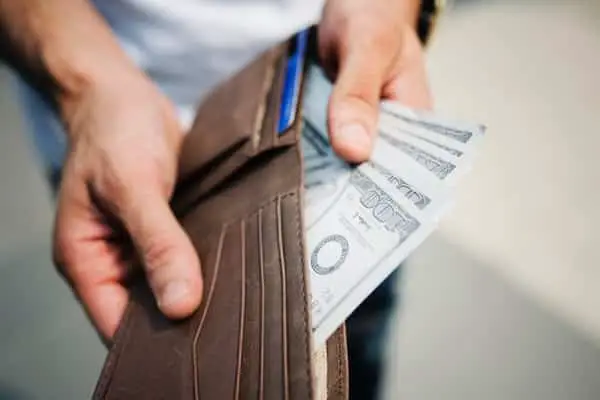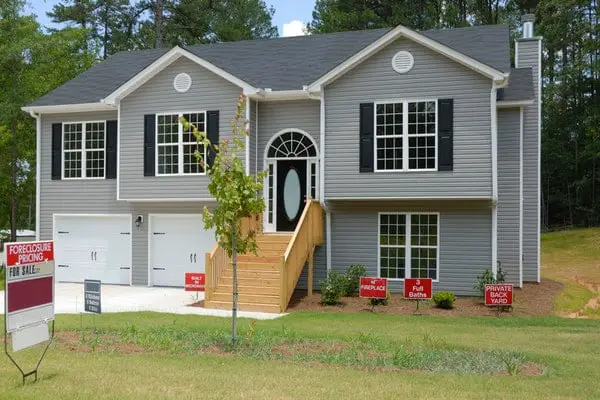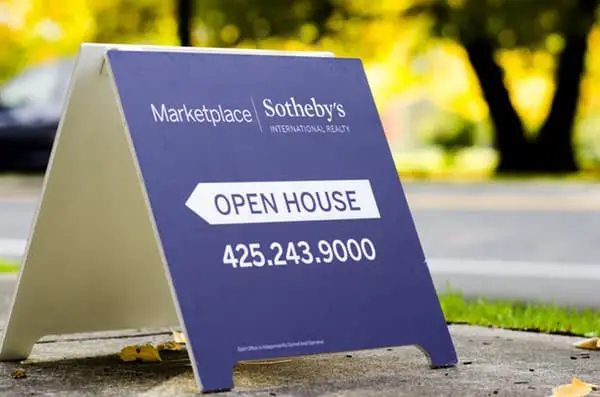Buying real estate can be one of the most secure investments you can make, but it can also be stressful. Understanding the difference between a down payment vs. deposit is just one of many obstacles to becoming a homeowner.
And even once you know the difference, you still have to decide how much money your down payment vs. deposit should be.
But while the whole process can seem daunting, arming yourself with knowledge is the best thing you can do. Deposits and down payments are big financial decisions that will impact your fiscal future. So, it’s essential to understand every step of the process so you can make a properly informed decision.
Definition of Down Payment vs. Deposit

Photo by rawpixel.com from Pexels
What is the difference between a down payment and a deposit?
A down payment determines the conditions of the relationship between the lending institution and the buyer. Similarly, a deposit forms an agreement between the buyer and the seller.
A buyer makes both during the home buying process: the deposit first, and then the down payment. And in both cases, the money comes out of the buyer’s pocket, not as part of a loan.
What is a Down Payment?
A down payment is a percentage of the purchasing price that a buyer gives to a lending institution (usually a bank) in a single transaction. Most people don’t have the cash to buy a home or car in one payment.
As a result, the buyer applies for a loan (called a mortgage loan for homes) to cover the remaining costs.
For example, you need a mortgage loan for a house that costs $100,000. If you make a down payment of $10,000 (10 percent of the purchasing price), you will receive a $90,000 loan from the bank to complete the payment.
Then, depending on the terms of the loan, you will make monthly payments with interest on the $90,000.
The size of the down payment doesn’t necessarily influence the seller’s decision. In the end, the seller will still receive the total sum of $100,000 (assuming the appraisal matches the purchasing price).

Photo by rawpixel.com from Pexels
The amount of the down payment affects the conditions the bank sets for the loan.
The down payment doesn’t include any of the money received from the bank. The buyer has to have the cash readily available in their bank account. That’s why saving for a house can take years.
And the larger the down payment you can make, the less interest your mortgage loan may accrue over time. Plus, a large down payment may lower the interest rate.
Ultimately, your down payment can help establish your trustworthiness to the bank.
What is a Deposit?
A deposit is like an agreement of good faith between the buyer and the seller. It may also be described as earnest money or an escrow deposit.
If you rent, you should be familiar with the concept. Landlords usually ask for a security deposit when you sign the lease agreement.
When you move out, the landlord may return the deposit as long as the property is in good condition. If not, the landlord may use part or all of the deposit to make necessary repairs.
Whereas a deposit with a landlord may equal one to three month’s rent, an earnest money deposit is usually a percentage of the purchasing price. A large deposit may persuade the seller to make an agreement with you instead of another buyer.
It can demonstrate to the seller that you are confident in securing the mortgage and committed to finalizing the sale.
But that deposit does not go directly to the seller. The money usually goes into an escrow account, which is managed by a third party. That allows both the buyer and the seller to enter contract negotiations in good faith.

Photo by rawpixel.com from Pexels
A deposit does not guarantee a sale; however, if the seller accepts the deposit, then the contract usually instructs the seller to take the house off the market. During this time, the home is appraised to verify the conditions of the house and determine its worth.
If the buyer decides not to follow through with the purchase or fails to meet conditions set by the contract, they may lose the deposit to the seller.
If, however, the inspection finds something horribly wrong with the property or the price doesn’t match the appraisal, the buyer could receive the deposit back — but only if the contract allows it.
When Do I Make a Down Payment vs. Deposit?
As we said, down payments and deposits are part of the home buying process, but they can also be steps to purchasing a car as well.
But before you make your purchase, it’s wise to get pre-approved for a car loan or mortgage before shopping around. This effort demonstrates to the lending institution (as well as the seller) that you are responsible and serious about making the purchase.
When approaching a bank for a loan, you should have an idea of what size house or car you want, where you want to buy, and how long you intend to own it.
Once you receive a pre-approval, you know what your budget can be for a down payment vs. deposit.
If you want to buy a car model that is custom-built or isn’t in stock, the dealership may require a deposit before ordering from the manufacturer. Or if you buy a car from a private seller, you may want to offer a deposit while you finalize your loan.
In contrast, buying a home is a longer process. Once you find the home you want, you make the deposit to secure a contract. When the seller accepts the deposit and takes the home off the market, the house needs to be appraised.
As mentioned previously, the appraisal will confirm the purchasing price set by the seller. Depending on what an appraiser finds, the buyer and seller may negotiate on any repairs or adjustments.
But if the appraisal goes well, then the buyer and seller enter the closing process.
During this time, the buyer will finalize the mortgage loan with the bank, which includes the down payment. Often times, the bank will accept the deposit as part of the down payment.
How Much Money Is a Down Payment vs. Deposit?

Image via Pexels
A large down payment vs. deposit can be a tough choice. Unfortunately, there is no magic number that fits all down payment or deposit situations. It largely depends on the value of the asset, the demand versus the supply, and your financial situation.
As a Home Buyer
A deposit is generally no more than two percent of the purchase price. The down payment a bank may require is usually 20 percent, but that’s not always the case.
In a hot housing market, a larger deposit may be more attractive to the seller and make you a top candidate.
For example, in 2018, the median selling price for a home in San Francisco was $1.5 million, but people were still bidding hundreds of thousands over the asking price. Buyers wanted to be competitive candidates by offering more money.
For down payments, banks often prefer to receive more money upfront to reduce their risk. As an incentive, they may offer lower interest rates to encourage larger down payments.
But remember that your home is a long-term investment. During that time, you may discover more lucrative opportunities that outweigh the benefits of a large down payment.
For example, say you have $20,000 available for buying a house that’s $100,000. You could use the entire $20,000 for a down payment, or you could use just $15,000 on the down payment, and invest the remaining $5,000 in other markets.
While you may accrue more interest on your mortgage, the $5,000 you invested may help you pay off the mortgage sooner.
It may also give you more financial freedom in the short run than if you had paid a $20,000 down payment.
But if you use the full $20,000 for the down payment, your monthly mortgage payments may be smaller. And depending on your financial situation, smaller monthly payments with a lower interest rate may be the fiscally responsible decision.
There are a variety of factors that will affect how much you pay, so be sure to keep all your options in mind.
As a Home Seller
When selling a home, the size of the deposit may affect your decision. Generally, a larger deposit means the buyer is serious about purchasing your home, and that they have the money to close the deal.
Plus, if the buyer does not commit to the sale, you may be able to keep the deposit and put your home on the market again. Or if the buyer fails to meet the obligations outlined in the contract, you may be entitled to the deposit.
But you only want to go through this process once, and a large deposit doesn’t necessarily mean an easy sale for you.
For example, a buyer may offer a high deposit, but also add a home sale contingency in the contract. That means the sale of your home is dependent on the sale of the buyer’s home.
So while a big deposit seems like a good thing for you, other factors may make the process easier in the long run.
What Happens After Making My Deposit and Down Payment?

Image via Pexels
Once your deposit is accepted by the seller, and the bank accepts your down payment, you are on your way to closing on the house!
But this is just the beginning of your journey as a homeowner (or landlord). Be sure to check out our tips for first-time home buyers so that you can make the best decision possible.
Have you made a down payment on your house yet? Do you still have questions about what a down payment vs. deposit is? Let us know in the comments!
Featured Image by 3D Animation Production Company from Pixabay